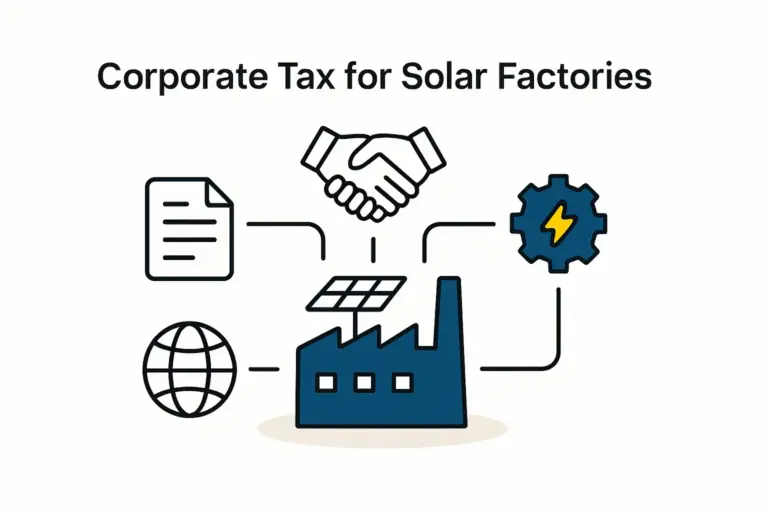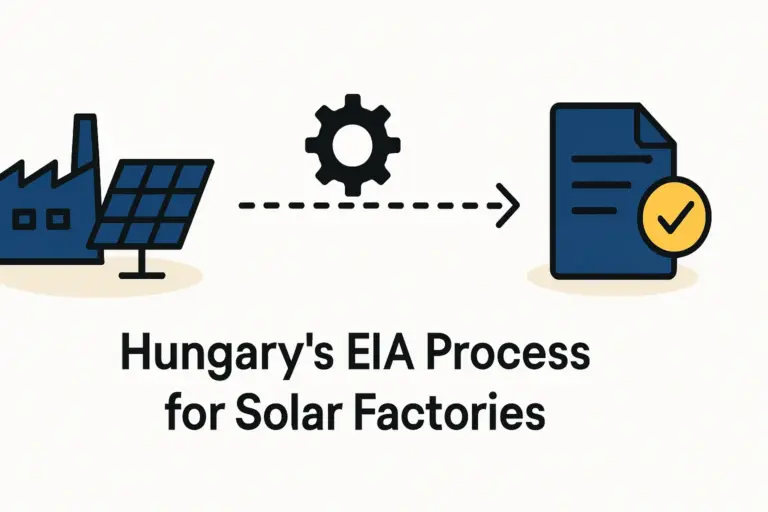One of the most critical questions facing any entrepreneur planning a solar module factory is not about machinery or materials, but about people. Where does one find the qualified engineers to oversee production and the skilled technicians to operate the equipment?
For investors considering Central Europe, Hungary presents a compelling and often overlooked answer, rooted in its long tradition of technical education and industrial expertise. A clear understanding of the local labor landscape is essential to the success of any new manufacturing venture. This guide provides an overview of Hungary’s educational infrastructure, highlighting the key institutions that produce the talent for a modern photovoltaic manufacturing facility.
The Pillars of Hungarian Technical Education
Hungary’s strength in technical labor is built on two complementary pillars: world-class universities producing high-caliber engineers and a robust network of vocational training centers (VTCs) that supply skilled, hands-on technicians. Influenced by the German model, this dual system ensures that businesses can recruit both strategic thinkers and practical implementers.
The government has actively supported this structure by emphasizing STEM (Science, Technology, Engineering, and Mathematics) fields and modernizing vocational training to meet the needs of advanced manufacturing sectors, including automotive and electronics. The result is a workforce already familiar with the high standards of quality and efficiency required in a solar panel manufacturing process.
Leading Universities for Engineering Talent
For leadership and process optimization roles, university graduates are indispensable. A successful operation depends on expertise in electrical engineering, materials science, mechanical engineering, and industrial management. When hiring a factory manager and core engineering staff, several Hungarian universities stand out as prime recruitment grounds.
Budapest University of Technology and Economics (BME)
As Hungary’s most prestigious technical university, BME is a primary source of top-tier engineering talent. Its faculties of Electrical Engineering and Informatics, Mechanical Engineering, and Chemical Technology and Biotechnology are especially relevant.
Key Disciplines: Electrical Engineering (with specializations in power systems and electronics), Materials Science, Mechatronics, and Process Engineering.
Industry Links: BME maintains strong ties with multinational corporations, ensuring its curriculum is aligned with current industry demands. Graduates often have practical experience through internships and collaborative projects.

Other Key Institutions for Specialized Recruitment
While BME is a cornerstone, other universities offer specialized programs that are highly valuable for a PV manufacturing plant:
-
Óbuda University (Budapest): Known for its practical approach, it is strong in mechatronics, electrical engineering, and technical management. Its graduates are often well-prepared to step directly into factory floor supervision roles.
-
University of Miskolc: Located in an industrial heartland, this university has a strong tradition in Materials Science and Mechanical Engineering, producing graduates with a deep understanding of the physical properties and handling of materials like glass, aluminum, and polymers.
-
University of Pécs: Its Faculty of Engineering and Information Technology offers solid programs in electrical and mechanical engineering, providing a talent pool for ventures located in the country’s southern regions.
Vocational Training Centers (VTCs): The Backbone of Your Technical Staff
While engineers design and oversee processes, skilled technicians are essential for the day-to-day operation and maintenance of a turnkey solar production line. Hungary’s vocational training system is specifically designed to produce these specialists.
VTCs focus on practical, hands-on skills. Students in programs for electronics, automation, and mechatronics learn to operate, troubleshoot, and maintain complex machinery. The dual training model, where students spend a significant portion of their time working at partner companies, means they graduate with real-world experience.
Key industrial regions with strong VTC networks include:
-
Győr-Moson-Sopron: Home to major automotive manufacturing, this region has a highly developed VTC system focused on automation and quality control.
-
Komárom-Esztergom: Another hub for electronics and automotive suppliers, its vocational schools produce technicians with skills directly transferable to PV module assembly.
-
Debrecen: As a growing industrial center in eastern Hungary, Debrecen offers an emerging talent pool and a potentially less competitive labor market.

Navigating the Hungarian Labor Market
Hungary has a competitive labor market, particularly for experienced engineers and technicians, driven by the significant presence of automotive and electronics manufacturers. This competition, however, is also an advantage: it has fostered a high-performance culture and created a large pool of professionals with transferable skills in automation, robotics, and quality assurance systems.
Salary expectations are competitive within the Central European context but generally remain favorable compared to Western Europe. A detailed analysis of regional salary benchmarks and talent availability is a crucial part of any serious solar factory investment plan. Based on experience from J.v.G. turnkey projects, early engagement with local universities and VTCs through internships and graduate programs can build a sustainable talent pipeline.

Frequently Asked Questions (FAQ)
What types of engineering roles are most critical for a solar module factory?
The most critical roles are typically Electrical Engineers (for testing and junction box assembly), Mechanical or Process Engineers (to manage the lamination and framing lines), and a Quality Control Engineer to ensure compliance with IEC and other standards.
Do technicians from Hungarian VTCs require extensive additional training?
Graduates from strong VTC programs possess excellent foundational skills in electronics and mechanics. They will, however, require specific training on the exact machinery used in your production line. This is a standard part of the commissioning process for any new factory.
Is English widely spoken among Hungarian technical graduates?
Among university-level engineering graduates, English proficiency is generally high, as many technical courses and materials are in English. At the technician level, proficiency can vary, but it is a common requirement for those working in international companies.
How does Hungary’s talent pool compare to neighboring countries like Poland or the Czech Republic?
All three countries possess strong industrial traditions and excellent technical education systems. Hungary’s specific advantage lies in its highly centralized cluster of top-tier universities in Budapest and its deep integration with the German industrial ecosystem, which emphasizes the dual vocational training model.
Ultimately, human capital is as important as access to financing or technology. Hungary’s well-developed educational framework provides a solid foundation for recruiting the skilled, technically proficient team needed to run a successful and competitive solar module manufacturing operation. A thorough feasibility study must therefore include a detailed, on-the-ground assessment of the local labor market to inform strategic site selection and recruitment planning.






